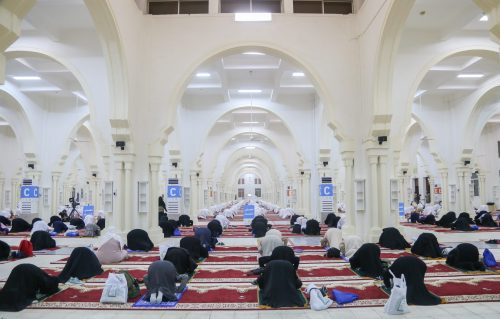By Bob MajiriOghene Etemiku
In the midst of the Covid 19 pandemic, we suddenly come to terms with many dysfunctional aspects of our life as a country. One such aspect is the conditional cash transfer, a scheme supposedly to benefit the poorest of the poor in Nigeria. The conditional cash transfer resembles a social security system but presently, there is a lot of confusion about the scheme arising from how the so-called poorest of the poor in Nigeria have been identified to be paid a monthly stipend.
Issues related to the identification of who actually is poor in Nigeria also came up prior to the 2019 presidential elections. The Federal government of Nigeria sent our Vice President and a Senior Advocate of Nigeria in Yemi Osinbajo through the thoroughfares of Nigeria to distribute ‘trader monie’, to the poor. Even though the ‘poor’ man almost lost his life in the process, the dominant question at that time was this: if there are no strings attached with the distribution of monies to the said Nigerian poor, why was it the Vice President who was to be going about like some accounts clerk, supervising the process. That suspicion and confusion over who the poor is in Nigeria arose again with the return of the Abacha loot in 2018. A World Bank brokered agreement between the Nigerian and Swiss governments, was based on the principle that the said returned loot, was to be distributed to Nigerians. How the monies became monies for the so-called poorest of the poor in Nigeria is another matter entirely. In subsequent discourses, we may want to interrogate this.
But what has not been confusing in the least, is that data of how monies have been shared to the ‘poor’ in Nigeria seem to favour a section of Nigeria. There are several sources but arguments in favour of who constitutes who is poor in Nigeria seems to have been derived from a study carried out by the University of Cambridge in June 2017. Titled Oxford Poverty and Human Development Initiative, OPHI, its authors said that there are three dimensions of poverty assessment – education, health and standard of living. They built these dimensions along certain indicators like child mortality, nutrition, access to electricity, sanitation, drinking water, strong health institutions and years of school attendance and schooling. Of the 36 states of the Federation, the study said that 20 states in Nigeria, and 90% of them in Northern Nigeria are poor indeed. This in effect means that these Northern states have little or no education, health facilities were lacking, and the standard of living is extreme.
Among the Nigerian states considered ‘marginally’ meeting the dimensions of poverty assessment are states in the South-South South-East and North Central – Lagos, Osun, Delta, Edo, Ekiti, Bayelsa, Akwa-Ibom, Rivers, Abia, Imo, Anambra, Kwara, FCT, Enugu and Kogi States. And therefore, most of these states have been excluded from, or are alleged have refused to apply to the conditional cash transfer programme. But our own study faults this Cambridge assessment, first because nearly all the monies being shared in Nigeria have as their origin the Nigeria Delta or South-South States. It is indeed a specious argument by Cambridge that only states in the North West and East are poor because they do not have access to health, education and have a low standard of living. Our collective Covid 19 experience exposes us all, and indicates that across board, no Nigerian can really be classified as rich or wealthy, especially as we all live under conditions of appalling leadership deficit. But we will try to use a historical antecedent to try to see how poor people have been identified in other places, and having been identified, were given an opportunity through a proper application of ideas.
About twenty three years ago in Washington DC, (February 2 – 4 1997), one very important conference took place. It was the very first Micro-Credit Conference held at the instance of two individuals – Prof. Mohammed Yunus, founder of the Grameen Bank (who later on won the Nobel Prize in 2006), and Sam Daley-Harris. Organisers of this conference said that they wanted to lift about 100 million of the world’s poorest out of poverty, especially the women of those poor families through credit. According to this twosome, issues of credit to the poor remain at the heart of the riddle of underdevelopment in most of the poorest countries of the world.
But prior to that conference, organizers said they first had to identify who indeed are the ‘poorest of the poor’. To do this, they would enlist volunteers in the rural communities in some developing countries to help with the identification of first the poor, and then the ‘poorest of the poor’. According to that Micro-credit pre-conference documents, issues related to the identification of the poor or the poorest could sometimes be subject to abuse and corruption. And so they introduced what they called then the ‘roof index’. Volunteers were to go from village to village and from community to community identifying citizens and locals who lived in houses or homes with bad roofs. Data collected over a fourteen year period, and which have been verified in the year 2000 indicate the following: one, institutional action plans by stakeholders interested in giving credit to the poor on very low interest rates had been well circulated amongst stakeholders. Two, a phone campaign to reach hundreds of the world’s multinational financial institutions, MFIs was carried out, leading the submission of a verification process to corroborate data on the poor. The perspective of the organisers of that Washington Micro-credit conference was that even though one may be poor, one could still afford to have a roof over one’s head. But matters take a different level of meaning for poverty if one is poor and unable to have a roof over one’s head.
But things are a lot different with how Nigeria has identified the poor for conditional cash transfer. Government has all kinds of crazy information out there. One of the silliest is that if one charges his phone with more than a hundred naira, or that you have a certain amount in your bank, you are not entitled to a stipend to cushion the Covid 19 induced lockdown. But we ask: are the poor the only people affected by this Covid 19 lockdown? Are poor people the only people being taken care of in the civilized world? According to documents linked to the Federal Ministry of Humanitarian Affairs, in the Disaster Management and Social Development Office, the Conditional Cash Transfer programme takes root from a World Bank Community Based Targeting, CBT. This CBT, according to the above office relies on an elite team in the community who identify what poverty means to them, and who the community considers the poorest households amongst them. Over the years, the National Social Safety Nets Coordination office is said to have built a National Register of poor and vulnerable households which the conditional cash transfer office relies on to make payments to the poorest households in Nigeria.
Nobody can say that they are impressed that the process for the identification of the poor in Nigeria is based on a World Bank document. Data and programmes linked to the World Bank cannot always be relied upon. Sometimes in the past, the World Bank/IMF came up with a Structural Adjustment Programme, SAP. It was a disaster for Nigeria, and all countries that adopted it. As a matter of fact, anybody who has read Confessions of an Economic Hitman 1 & 2 would easily attest to the surreptitious background of World Bank programmes. With the first Abacha loot, the government of Olusegun Obasanjo relied on the World Bank to help with the distribution of the said Abacha loot but look how that loot was wantonly re-looted. And again if a National Social Safety Net Record has been based on information supplied by an ‘elite team’, then that is most unfortunate. ‘Elite teams’ and the ones in these rural environment usually serve a political party, and therefore usually enlist those they consider supporters of the political party they have sympathies for as recipients of cash from government. We once attended a validation exercise somewhere in the South West of Nigeria, and when we asked one of the recipients of the Abacha loot where they think the monies they are receiving come from, they promptly said the monies come from ‘Uncle Yemi’.
A good way for the rumors making the rounds (one of them is that politicians are selecting who is poor), is for the National Social Safety Nets Coordination Office to publish its list of poor people and households in its possession. That way, they dispel these misgivings concerning the Conditional Cash Transfer Programme. In addition, it gives skeptics something to work on and prove the validity and sincerity of government plan to lift really poor people in Nigeria with cash. But the point must also be made that giving a really poor person cash as little as N5, 000.00 monthly does nothing to lift that poor person out of poverty. As a matter of fact that stipend increases poverty by consigning the individual to a mindset of poverty. What lifts people out of poverty is when they need to go school, there are good schools; they are sick, there are hospitals where they don’t pay outrageous fees for quality health care; they want credit for business and they can access it; they want to engage in small and micro-industries, there is power to drive such enterprises.
And until then, such schemes as the conditional cash transfers and the disbursement of loot couched in unverifiable figures and infographics will continue to contribute little to unravelling the logjam of poverty bedeviling Nigeria.
Etemiku is deputy executive director, Civil Empowerment & Rule of Law Support Initiative, CERLSI. majirioghene@protonmail.com



